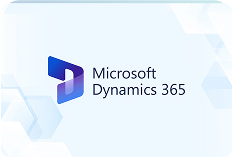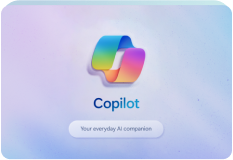Table of Contents
Today, more than ever, businesses must put their resources into reliable technologies that can expedite their interactions with customers and use them to their advantage if they want to succeed. Enter Dynamics 365 CRM, Microsoft’s premium customer relationship management product, which has transformed how organizations interact with their customers. With its extensive feature set that addresses many aspects of the business-client ecosystem, this CRM has been diligently developed to revolutionize the way customer interactions are managed.
How CRM Software Benefits Businesses
Customer Relationship Management (CRM) systems have become the cornerstone of business strategy, acting as the nexus between customers and the company. The deployment of CRM is a testament to an organization’s commitment to placing customers at the heart of their operation.
Here are the key benefits of CRM in any business strategy:
Centralized Customer Data: CRM systems provide a centralized repository for customer information, making it accessible to various departments within the organization. This centralization allows for a unified, 360-degree view of the customer, ensuring that every interaction with them is informed and personalized. The result is a higher level of service and an improved customer experience.
Enhanced Communication: CRM enables businesses to streamline communication, not only internally but also with their customers. It automates and organizes communication logs, ensuring that no customer query goes unanswered. This responsiveness fosters trust and can significantly enhance customer satisfaction and loyalty.
Improved Customer Service: With detailed customer histories and preferences at their fingertips, customer service representatives can resolve issues more efficiently and provide tailored assistance. This personalized approach can turn a potential customer complaint into a positive experience, reinforcing the customer’s decision to do business with you.
Sales Growth: CRM tools are adept at managing the sales pipeline, tracking leads, and identifying potential up-sell or cross-sell opportunities. By analyzing customer data, sales teams can better understand buying patterns and behaviors, allowing for the creation of targeted campaigns and offers that resonate with the customer base, thus driving sales growth.
Marketing Optimization: Marketing efforts become more effective with CRM as it enables segmentation of customers based on various criteria. Campaigns can be tailored to specific segments for higher conversion rates. Moreover, CRM analytics provide invaluable insights into campaign performance, helping to refine marketing strategies over time.
Increased Efficiency and Productivity: Automation of mundane tasks is another hallmark of CRM, freeing up staff to engage in more high-value activities. Workflow automation ensures that tasks are carried out consistently and on schedule, enhancing overall business productivity.
Understanding Microsoft Dynamics 365 CRM
Microsoft Dynamics 365 is a CRM that was developed to improve and simplify the interaction with customers, as well as to keep customers engaged throughout the entire sales process. It allows salespeople to oversee their customer support team, centralize the data and customer involvement, take advantage of sales analytics, provide personalized offers, and a great deal more.
Microsoft caters to businesses of all sizes and types by providing cloud, on-premises, and hybrid deployment choices. Thanks to cloud deployment, businesses have the freedom to manage and oversee data from any location at any time, allowing them to nurture sales leads in real-time.
With Dynamic 365 CRM, businesses can manage and organize all client data, including demographics, age, employment status, and income. Effortlessly contact, monitor, and record all interactions with customers for future use with the help of this app’s user-friendly features and capabilities.
An In-depth Dive Into Different Dynamics 365 CRM Apps
Microsoft Dynamics 365 CRM includes Sales, Customer Service, Marketing, Field Service, and others. Below is a list of some key Dynamics 365 apps and their features:
Dynamics 365 Business Central
All-inclusive ERP Solution: Business Central integrates various business processes into a single system, streamlining operations across finance, supply chain, sales, and more.
Role Optimization: It allows the definition of employee roles and permissions, customizing the system to meet specific business needs.
Supply Chain Enhancement: Optimizes supply chain processes to increase efficiency and sales while reducing costs.
Cloud Technology: Offers the flexibility of managing data from anywhere via cloud services.
Integration: Allows businesses to integrate other solutions for improved efficiency and productivity.
Dynamics 365 Finance & Operations
End-to-end ERP Solution: Connects finance and business operations, including supply chain, manufacturing, inventory, and transportation management.
Device and Location Flexibility: Accessible from any device, enabling operations from various locations.
Microsoft Application Integration: Enhances efficiency by integrating with other Microsoft business applications like Power BI.
Product and Service Optimization: Allows for better visibility into products and services, improving offerings.
Personalized Customer Engagement: Improves customer satisfaction by enabling more personalized engagement opportunities.
Dynamics 365 Project Service Automation
Resource Optimization: Maximizes the utilization of resources to ensure efficient project completion.
Project Financials: Streamlines project financial management to increase profitability.
Time and Expense Tracking: Facilitates more efficient tracking of time and expense management.
Project Management Tools: Includes embedded Microsoft Project capabilities to enhance overall project management.
Project Accuracy: Improves the accuracy of project quotes, forecasts, and estimations.
Dynamics 365 Field Service
Technician Management: Simplifies the management and distribution of technicians to improve service delivery.
Centralized Customer Information: Maintains customer information in one location for ease of access and management.
Service Optimization: Aids in optimizing service delivery to increase customer satisfaction.
Dynamics 365 Marketing
Sales and Marketing Connection: Bridges the gap between sales and marketing functions, allowing for better data utilization.
Marketing Automation: Automates marketing efforts to maximize ROI.
Lead Generation: Utilizes platforms like LinkedIn for new lead discovery.
Ad Personalization: Personalizes ads to generate more sales leads and create effective landing pages.
Dynamics 365 Sales
Lead and Opportunity Management: Collects, analyzes, and nurtures leads, converting them into opportunities and tracking revenue.
Quote and Order Management: Enables a faster quote-to-order process and integrates with ERP systems for synchronized data.
Sales Visualization: Provides visualization tools for managing the sales funnel and sales statuses.
Collaboration: Connects everyone to a shared database of sales and customer details, accessible across different work environments.
Dynamics 365 Customer Service
Customer Issue Management: Consolidates customer issues in one place for better service.
Knowledge Base: Provides information to help customer service agents troubleshoot issues more rapidly.
Contract Management: Manages customer service contracts for both B2B and B2C businesses.
Features of Microsoft Dynamics 365 CRM
Users may better comprehend data insights and develop stronger customer interactions with the help of Dynamics 365 CRM’s many features and capabilities.
Consistent UI: Microsoft Dynamics 365 CRM provides a consistent user experience for all users and platforms. Users can get streamlined data navigation and layout with the help of integrations and personalized customization. The data insights are updated in real-time with the cloud deployment, so other users can view and edit what one user changes.
Sales Process Module: An integrated sales module is available in Microsoft Dynamics 365 CRM for businesses. It monitors, reports on, and enhances sales strategies. To acquire a clear picture of a company’s sales situation, it displays precise sales benchmarks, performance, efficiency, and value reports.
Activity Timeline: The Activity Timeline records all user activity. In an emergency, it aids in tracking down and locating the precise data or assignment. Users can also utilize filters to zero in on a certain activity and acquire the data they need in no time.
Marketing Features: Using the marketing module, users may monitor the campaign’s performance, generate reports, and determine the return on investment. Inviting new consumers with a tailored message or offer and rewarding current ones with exclusive deals are both made easier with this module.
Different Deployment Methods: Businesses of all sizes may take advantage of Microsoft Dynamics 365 CRM’s flexible deployment choices, which include cloud, on-premises, and hybrid. Deploying data servers on Microsoft Azure servers allows for round-the-clock accessibility from any location with an internet connection.
Data-Reporting: Dynamics 365 CRM lets users request customer, activity, contract, and other data. With Power BI, users can prioritize and share data visualizations. The ability to make data-driven decisions is made possible by these visual insights, which help people understand and make use of the data.
Microsoft Dynamics 365 CRM Pricing Plans
Microsoft Dynamics 365 CRM offers a range of pricing plans to meet the diverse needs of businesses, whether they are small, medium, or enterprise-level.
Sales Pricing
Sales Professional: $65 per user/month – Core sales force automation and Microsoft 365 integration; subsequent qualifying app at $20 per user/month.
Sales Enterprise: $95 per user/month – Advanced sales force automation with AI insights and customization; additional app licenses at $20 per user/month.
Sales Premium: $135 per user/month – Combines Sales Enterprise features with prebuilt, customizable intelligence solutions; subsequent qualifying app at $20 per user/month.
Customer Service App Pricing
Customer Service Professional: $50 per user/month – Core customer service capabilities for small and medium businesses; subsequent qualifying app at $20 per user/month.
Customer Service Enterprise: $95 per user/month – More extensive customer service functionality with omnichannel capabilities; additional app licenses at $20 per user/month.
Field Service Pricing
Field Service: $95 per user/month – Comprehensive field service management with scheduling, inventory management, and more; subsequent qualifying app at $20 per user/month.
Marketing App Pricing
Customer Insights: From $1,500 per tenant/month – Deep customer insights and analytics platform. If at least 10 users of qualifying Dynamics 365 apps are present, the price is reduced to $750 per tenant/month.
Choosing The Right Dynamics 365 CRM Solution Expert
Choosing the ideal Dynamics 365 partner is a pivotal decision that can significantly influence the success of your CRM implementation. To ensure you make an informed choice, prioritize a partner with proven expertise in Dynamics 365 solutions, as well as a solid track record of successful implementations in your industry.
Look for a company that not only boasts the necessary Microsoft certifications but also offers a clear understanding of your business processes, ensuring a tailored approach to your CRM needs. Additionally, consider their capability to provide comprehensive training and support, which is essential for fostering user adoption and maximizing the benefits of your Dynamics 365 investment.
Evaluate their customization and integration skills, along with their commitment to scalability and future-proofing, to accommodate your business’s growth and evolving requirements. With transparency in cost and a reputation for delivering on their promises, your Dynamics 365 partner should align with your business goals and values, offering a partnership that extends beyond the initial implementation.
Ready to elevate your business with a Dynamics 365 solution that’s perfectly aligned with your needs? Contact Techcronus—your trusted partner for Dynamics 365 implementation and






















